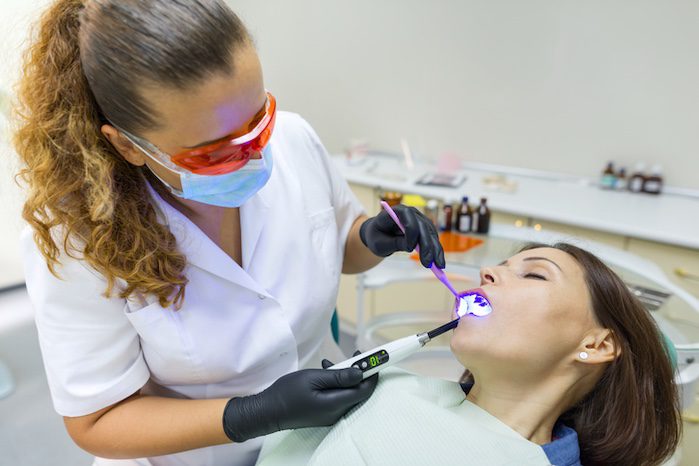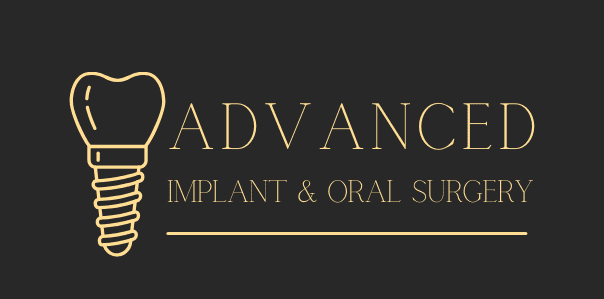Many people avoid going to the dentist out of fear. This will almost always lead to poor oral health and many dental problems. When dental concerns are ignored, they will only get worse. Seeking treatment as soon as possible will avoid expensive, complicated, and painful treatments. Oral sedation dentistry in our Plano, TX office is an easy way to treat patients with dental anxiety or fear of the dentist.
Oral sedation used in dentistry today has helped millions of people regain their oral and overall health. It allows patients to get the treatment they need despite their anxiety. When taken before the dental appointment, oral medication provides total relaxation. Patients who undergo treatment under oral sedation dentistry typically report feeling relaxed. They often have no memory of their procedure.

Why Should You Choose Oral Sedation Dentistry in our Plano Office?
Dr. Bradley Dean has extensive experience and training in administering different types of sedation, such as oral and IV sedation dentistry. The medications we offer are safe, effective, and carefully controlled.
Dr. Dean can complete most procedures with commonly prescribed medications. These medications are tested, studied, and approved for use. In your total state of relaxation, you can still respond to his questions and breathe independently.
Benefits of Oral Sedation Dentistry
Oral sedation has many benefits over other methods:
- No needles
- Provides medication taken before your visit
- More affordable, compared to IV options
- Allows the dentist to perform more dental work in fewer visits
We will prescribe your medication and give you instructions on when to take it before your visit. However, we will not recommend oral sedation if you have an allergy to anxiety medication. We will obtain information about your medical history and note any allergies before we prepare treatment.
How Does Oral Sedation Dentistry in Plano, TX Work?
Oral sedation provides “light sedation” to ease anxiety. Dr. Dean will prescribe medication that you can take before your scheduled visit. You must have a responsible adult escort to and from your appointment. Oral medications will impair your ability to drive or travel alone.
As the medication enters the bloodstream, you will enter a deep, relaxed, and dream-like state. You will remain fully conscious and able to breathe independently. Some patients may even fall asleep. As the medication wears off, most patients experience some degree of amnesia. They will not remember their treatment.
A drawback to sedation is the side effects and reactions. The recovery can sometimes be uncomfortable. You may experience unwanted side effects such as drowsiness, headache, and/or nausea. This is why taking time to recover after your treatment is essential. After your procedure, rest at home. It will take time for the effects to wear off.
Ensuring Your Comfort in Our Office
We understand that some patients may be afraid of visiting the dentist. If getting a cleaning or exam fills you with fear, we may recommend sedation. Sedation can be a helpful tool to keep you relaxed during treatment. In addition, we can provide accommodations as needed.
You can bring objects that will help calm you during your visit. We encourage you to bring music and headphones, stress balls, or other comforting objects. Communication is key at our office. If you have concerns or questions, we will be glad to answer them.
Avoiding dental care can worsen dental problems. Getting the care you need with sedation can prevent problems from worsening. You may need more dental treatment if you do not initially treat your problems.
Our office is not here to judge if it’s been years since your last visit. We’re here to help you and want you to improve your dental health in any way we can. Our friendly team is glad to help you get the care you need comfortably.
Oral Sedation Dentistry FAQs
Learn more with answers to these common questions from our patients:
Does dental insurance cover oral sedation?
Oral sedation is typically not covered by dental insurance. Most providers consider it an optional part of treatment. Ultimately, it depends on your coverage. Contact your provider to see if sedation is included in your plan.
Is oral sedation dentistry safe?
Yes! Dr. Dean only uses safe medication that has been thoroughly tested and approved. He will also monitor you for your safety.
We will get your medical history and ensure you are a good candidate before treatment. You should discuss any conditions you have and any medications you are taking with Dr. Dean. He will give you instructions on how to take the sedative at home before your visit.
What can I expect during oral sedation?
The effect of sedation varies from patient to patient. However, most people feel sleepy or calm during their surgery. Many patients may feel sensations but will not feel pain. After treatment, you might also feel tingling in your limbs and mouth.
How long does oral sedation take to work?
Once you take the pill, it can take an hour for you to feel anything. The anti-anxiety medication works through the bloodstream and takes effect within minutes.
However, pills take 30 to 60 minutes to affect your body. For this reason, we recommend that you get transportation to and from your visit.
Can I eat before sedation?
No, you cannot eat before sedation. You should fast for six hours before your treatment. However, you can drink liquids up to two hours before you visit our office. You can get an upset stomach if you eat before treatment. This is why we recommend fasting six hours before your appointment.
How do I relax before sedation?
Slowing the mind and body down before any treatment can make you feel more relaxed. Before your visit, follow deep breathing, meditation, or relaxation exercises. We can also recommend bringing music and headphones to your visit or stress balls to help calm you in our office. Then, the sedation will calm your nerves in our office once it takes effect.
Get Comfortable Care Today
See the difference sedation can make in your comfort at the dentist. Call for a relaxing treatment with oral sedation dentistry in Plano, TX, today at (972) 964-2900. You can also schedule an appointment with Dr. Dean online.
Let us know if you have any questions about your treatment. We’re here to help.
